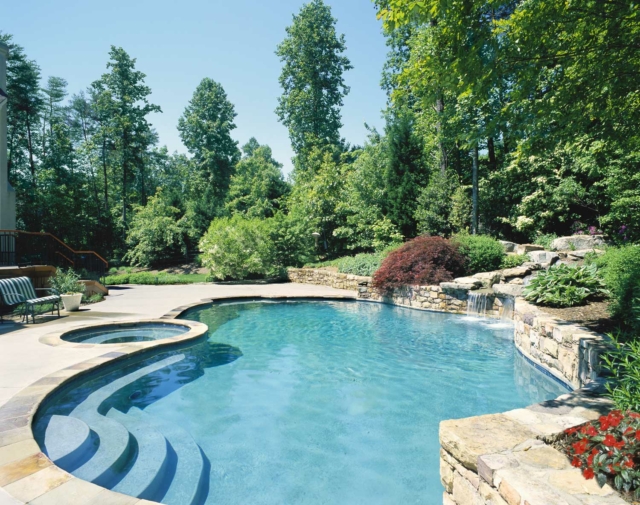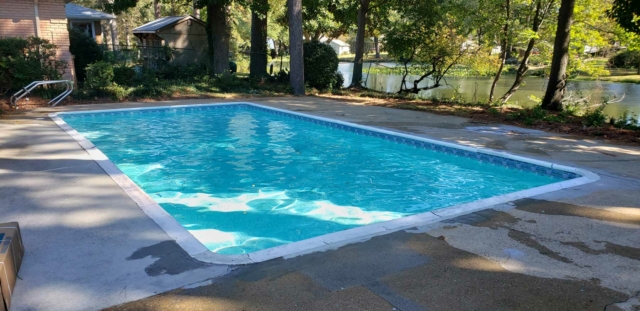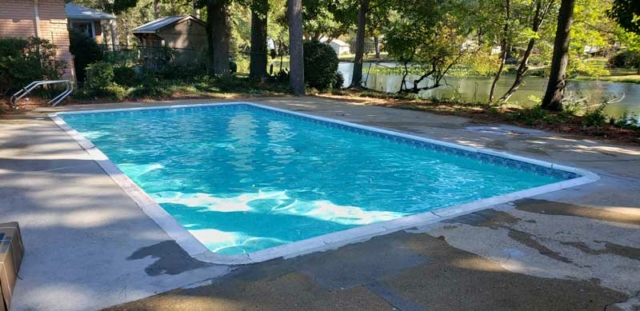Replace a pool filter – When Should I Replace My Pool Filter?
Your pool filter is an essential component in the pool. Pool filters are responsible for trapping all dirt particles and debris in the pool. As a result, pool filters tend to get dirty frequently. It is therefore important to clean your pool filter from time to time. Otherwise, it won’t function to its full potential. Grease, minerals, and dirt particles tend to accumulate around the cartridge. Thus, pool experts advise that you replace a pool filter after three to five years.

Needless to say, this period varies depending on the condition of the cartridge. For example, if your cartridge wears out after two months, you might have to replace it.
The best time to replace a pool filter
More often than not, the time taken to replace a pool filter varies based on several factors. But typically, pool owners replace their filter after every three to five years. Filters are prone to wear and tear after some years of use. So, you might have to replace the filter earlier. Constantly evaluate the condition of your filter and check for any potential issues. Below are some of the signs that you need to replace your filter.
Cleaning Frequency
Pool owners need to clean their filter every time the pressure gauge exceeds 8 PSI. If the pressure gauge exceeds these pounds more frequently, you may have to replace a pool filter. This could signal a problem with the efficiency of your filter. When you find yourself cleaning your cartridge many times in a row, consider replacing the filter.
Water Quality
You can easily tell the condition of your filter by observing your pool water condition. Cloudy or unclear pool water is a major sign that your filter is not working to its maximum potential. Additionally, if you have to add excessive sanitizer to achieve crystal clear pool water, there could be a problem with your filter. If you have murky pool water, it would be best to clean your cartridge first. Then, after some hours, check for any changes in the water quality. If the problem persists, you may have to replace a pool filter.
Filter Damage
Indisputably, every pool owner needs to check the condition of their filter regularly. At times, your filter may have tears or cracks. If you experience any damages to your filter, it would be best to replace it. Conducting a repair is not cost-effective since you’ll still have to replace a pool filter in the long run. Keep in mind that a damaged filter does not keep the pool water clean and safe for human use. If possible, replace a damaged pool filter as soon as you can.
The size of your filter can also help you determine when you need to replace a pool filter. Usually, a large pool filter offers maximum durability. Thus, you don’t have to replace them after three years; filters can always last longer. In particular, large pool filters incorporate fewer cleanings annually; hence, they are likely to be more durable. Nevertheless, note that larger filters are more costly. A general rule is that if your filter is twice bigger, it offers double longevity.
When should you clean your pool filter cartridge?
As mentioned earlier, dirt usually builds up around the cartridge. Thus, it is important to clean the cartridge frequently. Typically, it would be best if you cleaned the cartridge anytime the pressure gauge exceeds 8 pounds. Alternatively, if you are using a standard cartridge, clean it after six months. This only applies if there is a little build-up of dirt around the cartridge. Also, clean the cartridge if there is a change in the quality of water. It is also advisable to check for any cracks or tears in the cartridge regularly.

Pool filter cleaning tips
When cleaning your pool filter, you have to observe certain safety practices. Failure to do so might lead to damage to your filter.
- Avoid using a power washer to clean your filter. Power washers often incorporate a lot of pressure. Thus, they can damage your filter. In turn, they will shorten its durability. Moreover, you will have to deal with a lot of repairs both in the short and long run. This might cost you a lot of money.
- Once you complete cleaning the filter, don’t expect it to turn white. The filter may not look as clean as you’d want it to be. In fact, it may still look dirty; but it functions best while in this state.
- It is very important to give your filter an annual soak. Use suitable detergent to soak the filter. Doing this keeps the filter clean at all times and prevents the accumulation of dirt.
Need help to replace a pool filter? Contact us today!
It is clear that you should replace a pool filter after every 3 to 5 years. Of course, this time varies depending on the condition of your filter, among other factors. When replacing your filter, it is essential to hire a dependable pool company. Currently, one of the best pool companies you can hire is Fox Pools. We offer the best filter cleaning services; thus, we help you prolong the durability of your filter. We also conduct filter inspections. Consequently, we help you check whether your filter is in good shape.



